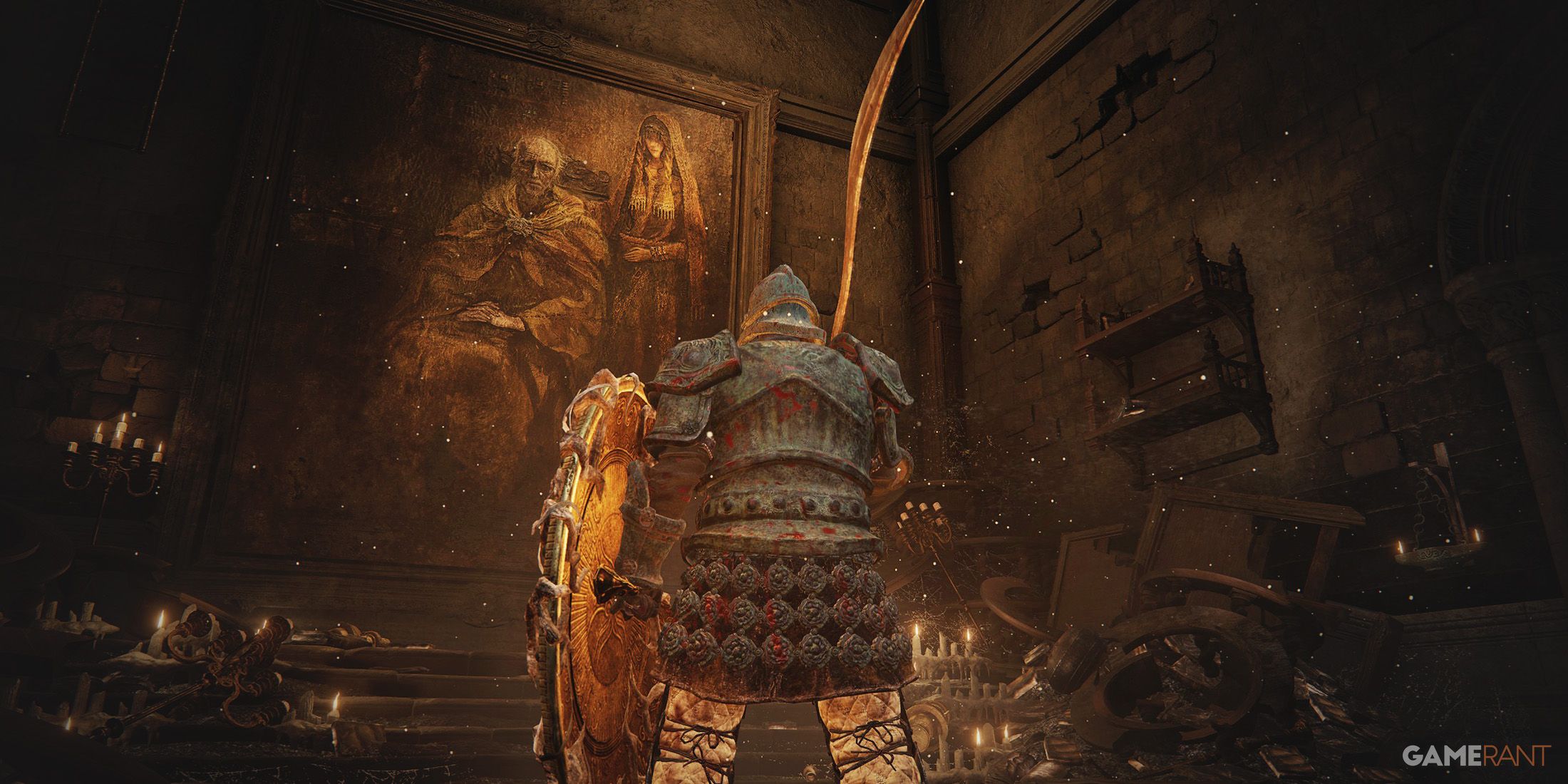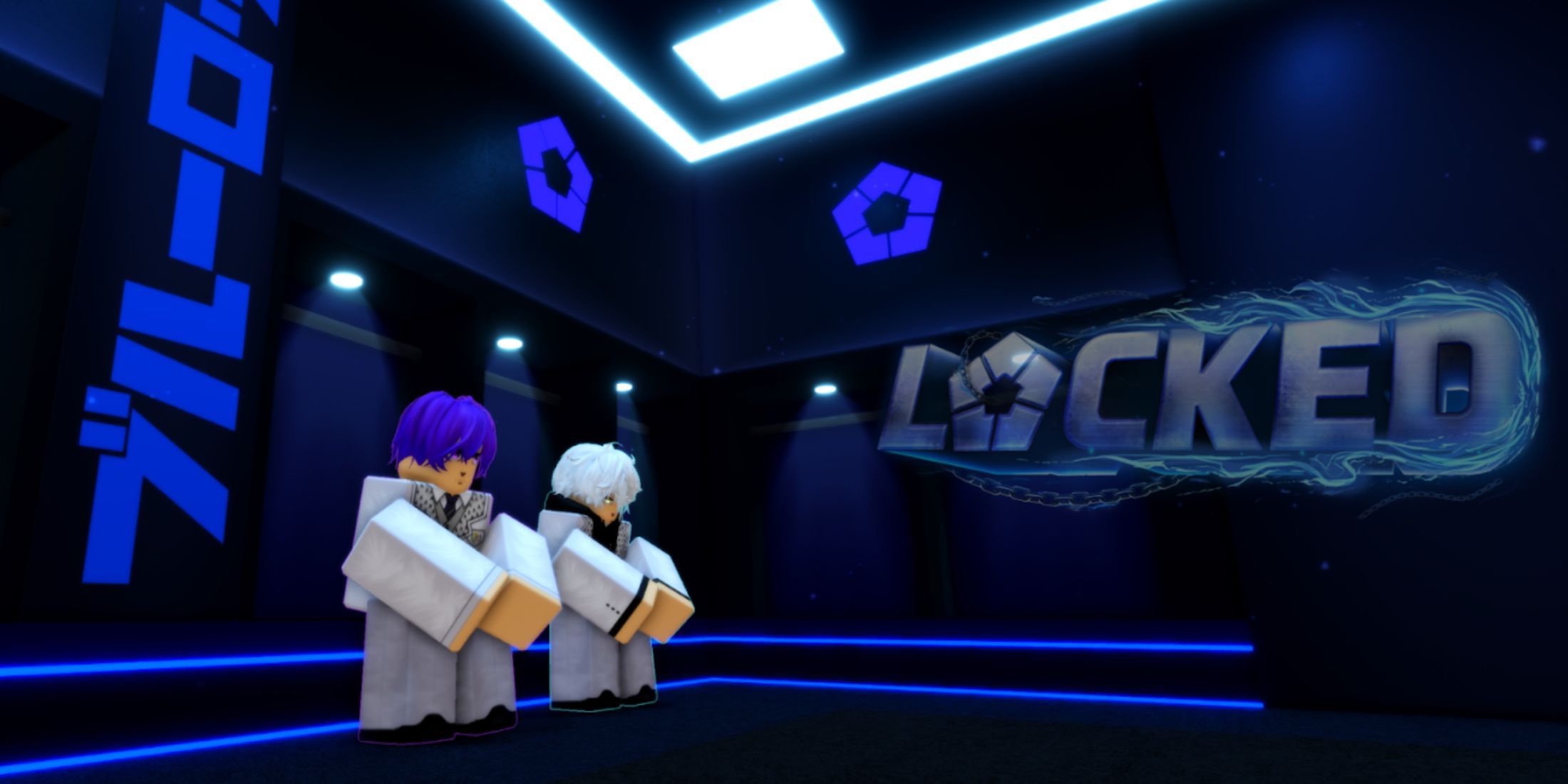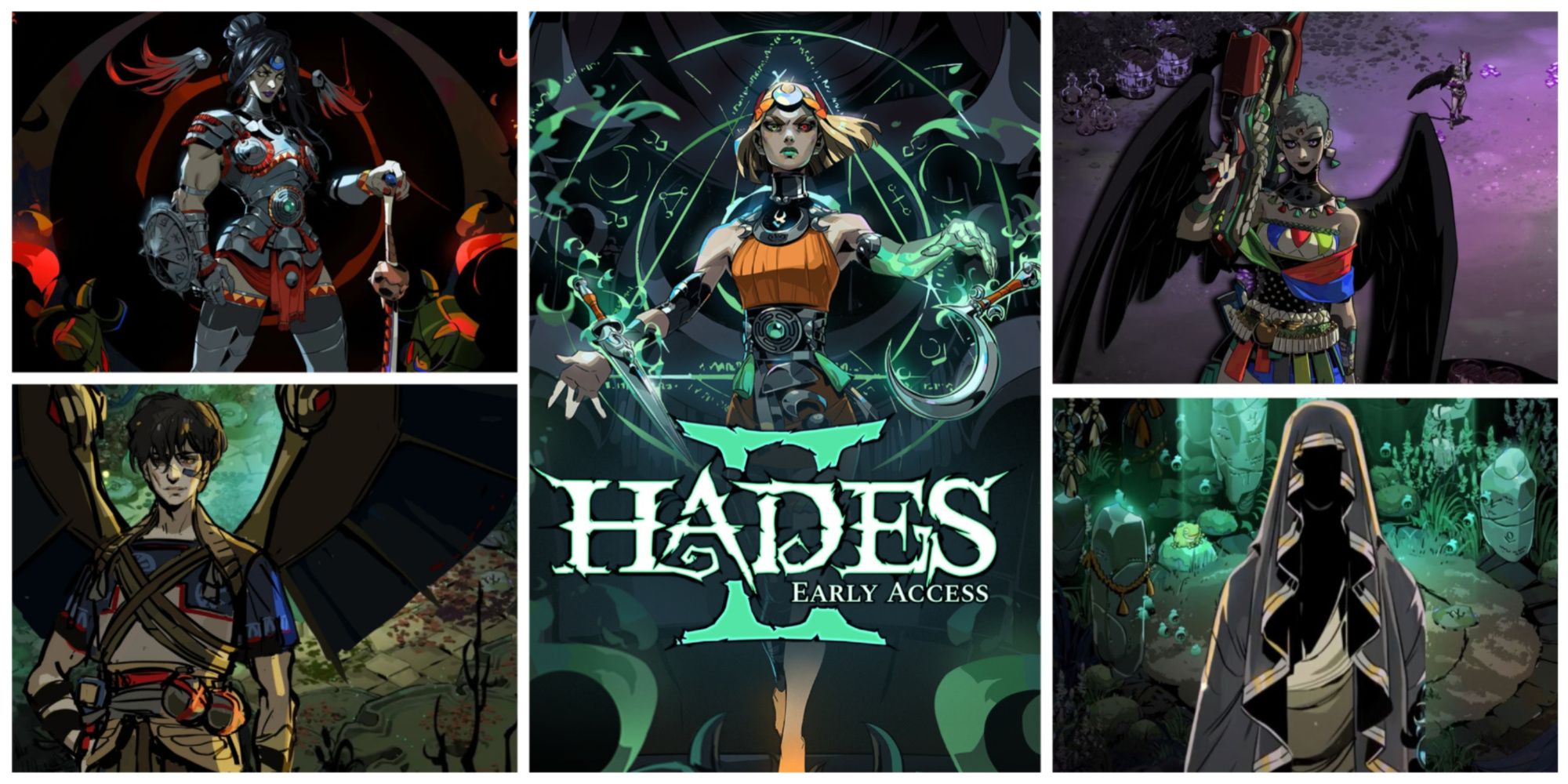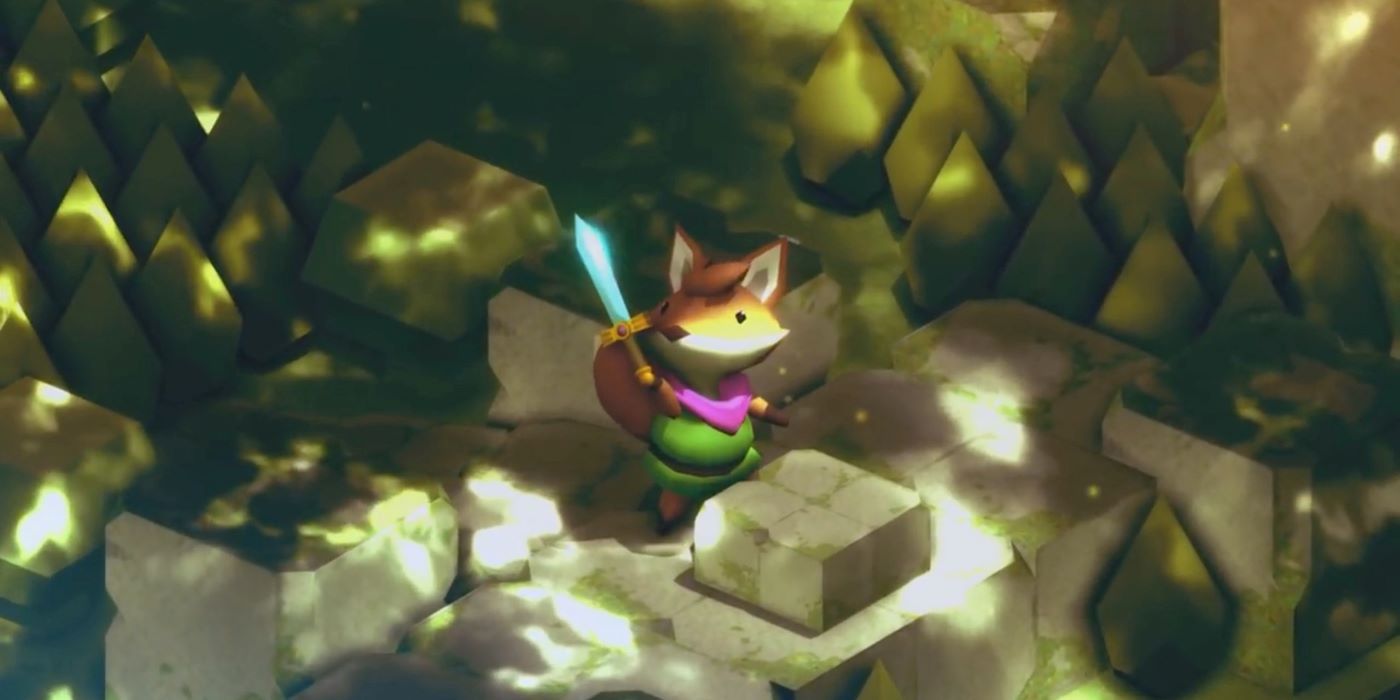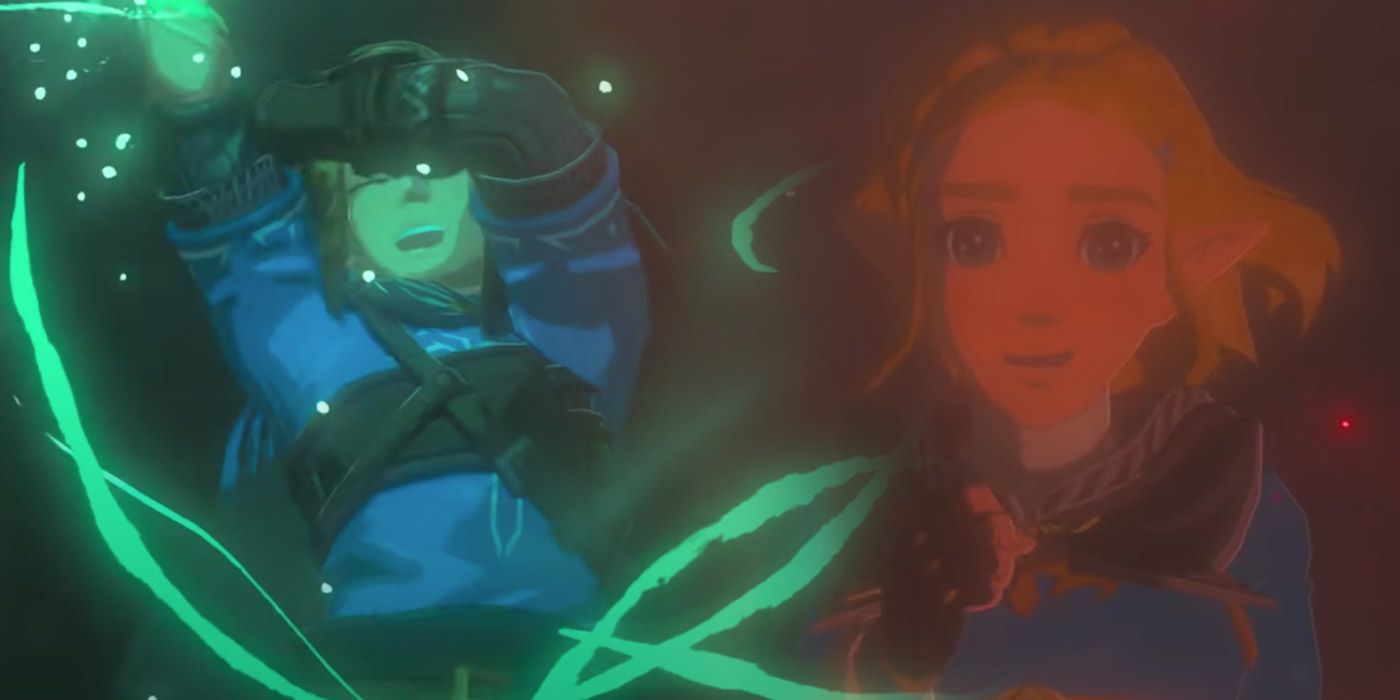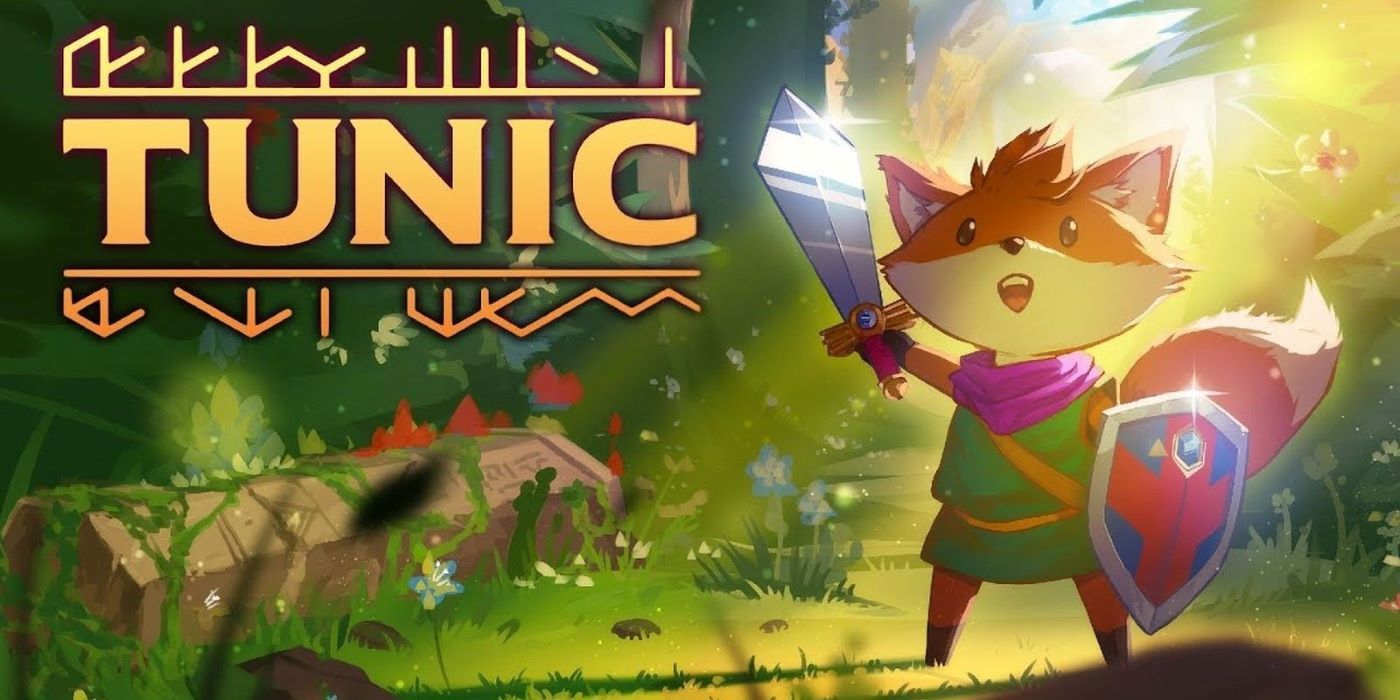Whenever an indie game makes headlines, it's interesting to examine it and see what kind of indie game it is. Many of them can be thrown into some broad categories that transcend genres. For instance, some games take conventions of genres and the industry and completely turn them on their head, trying their best to be as unique as possible. Others wear their inspiration on their sleeve and don't hide the fact that they're heavily inspired by more famous games. Tunic is one of the latter. It's unabashedly intended to look and feel like something from The Legend of Zelda's storied lineage of games.
That inspiration and passion certainly lend Tunic a charming aesthetic. Its top-down perspective, bright colors, cartoony monsters, and green-clad hero mean that Tunic will probably make players feel some nostalgia for early Legend of Zelda games like Link's Awakening and A Link to the Past. That nostalgia will drum up a lot of publicity for Tunic, too, as fans and critics draw comparisons. Although it's great that Tunic is so inspired by such a strong franchise, it also needs to set itself apart somehow. If Tunic borrows too heavily from the games it admires, it won't be remembered as its own experience.
Two Sides of the Same Rupee
Tunic's love of The Legend of Zelda will readily prove helpful to Tunic. One of the most challenging obstacles that indie games face is getting publicity. If an indie developer isn't already famous and doesn't have a successful publisher to help it distribute the game, it can be hard to get people to notice the game and give it a chance. Because Tunic is so similar to The Legend of Zelda, though, pretty much anyone who sees it will comment on it and share information about Tunic with friends and peers who might feel similarly. Every time it resurfaces, then, there will be a new wave of discussions comparing and contrasting Tunic with Zelda that give the game even more attention.
The problem is that some people might not make these comparisons and contrasts favorably. The old adage says that all publicity is good publicity, but that isn't necessarily true for video games. If people start to think that Tunic is leaning too far into its Zelda elements, fewer and fewer people will feel compelled to buy and play it. Too many similarities would ultimately mean that Tunic ends up getting written off as a Zelda clone. That would certainly be unfair to Tunic's unique aspects, but more importantly, it would mean almost certain failure for the game.
Straightening Tunic Out
Tunic's Andrew Shouldice needs to figure out how to strike the balance between these two in order to make the game a hit. He might already have an interesting way to do so. In interviews, Shouldice has also mentioned sources like Dark Souls, Bloodborne, and the animated film The Secret of Kells as inspirations, among many others. He intends to capture many of the same elements that make these IPs famous. All of these resources are very different from The Legend of Zelda, especially the older games that Shouldice cites as the strongest inspiration. Tunic will be unique if those other inspirations shine through in spite of the obvious Zelda influence.
That means that the final verdict on if Tunic becomes a hit will probably come down to the gameplay. That's not surprising, as that's the case for just about any game, but it's especially important when Tunic is trying so hard to be a love letter to other games. It's okay for a piece of media to be a love letter; sometimes these kinds of IPs go on to be extremely successful and beloved in their own right. Tunic still has a shot at doing the same. It just has to make sure that it doesn't try too hard to get its love of Zelda across.
Tunic is in development for PC, Mac, and Xbox One.

